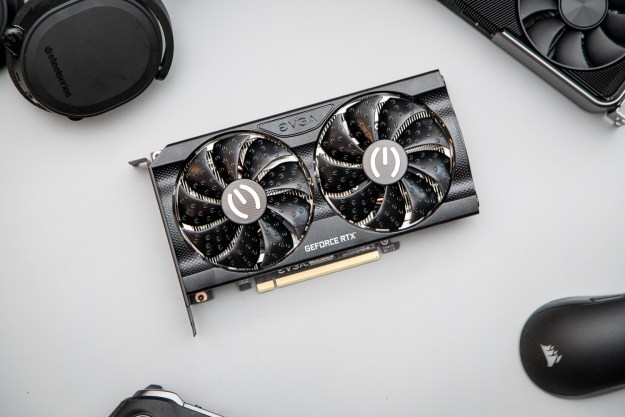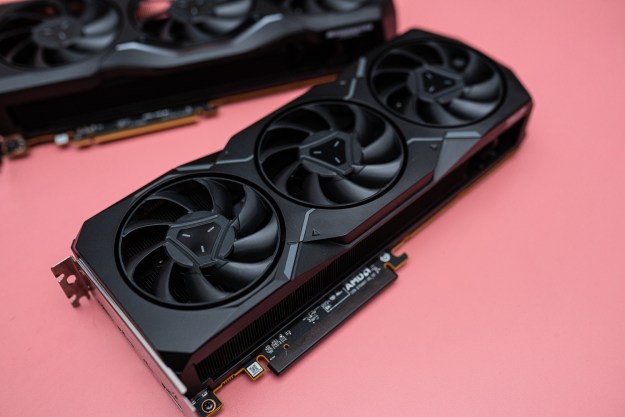
Granted, that’s just the price of the reference card if you buy it straight from Nvidia. Generally those cards are sold to other manufacturers like PNY and EVGA to overclock and add their own coolers too. Those cards generally run $50 to $100 more than the reference version.
As a comparison, the GTX 980 reference retailed for $549 at launch, and most of the aftermarket versions of the card still sell for around $600, with some of the more basic versions drifting down to $550. That price gap will be a little bit higher for the 980 Ti after release as brands start to roll cards out.
The GTX 980 Ti is rumored to boast six gigabytes of GDDR5 VRAM, a two gigabyte bump from the standard GTX 980. According to the same rumored specs, the clock speed and cores are actually closer to the Titan X than to the GTX 980, with a base clock of 1000MHz – although that’s without any overclocking.
Indeed, if the rumored performance benchmarks are valid, the 980 Ti will be a huge step up from the standard 980, and if the price is correct, a great choice for gamers that aren’t quite ready to step up to the Titan X, or want a great SLI setup.
That also may mean a price drop for other high end Nvidia cards, like the GTX 980 and 970. Generally as new cards are announced, retailers will clear out their stock to prepare for the new products to come in. If you’re in the market for a new graphics card, wait for the 980 Ti, but keep your eyes out for a steal on the standard 980, which is still more than enough to handle 1080p gaming.
Editors' Recommendations
- New Nvidia update suggests DLSS 4.0 is closer than we thought
- Nvidia is bringing ray tracing and DLSS 3 to your car
- Nvidia’s AI game demo puts endless dialogue trees everywhere
- My most anticipated game of 2024 is getting the full Nvidia treatment
- Nvidia is the ‘GPU cartel,’ says former AMD Radeon manager



